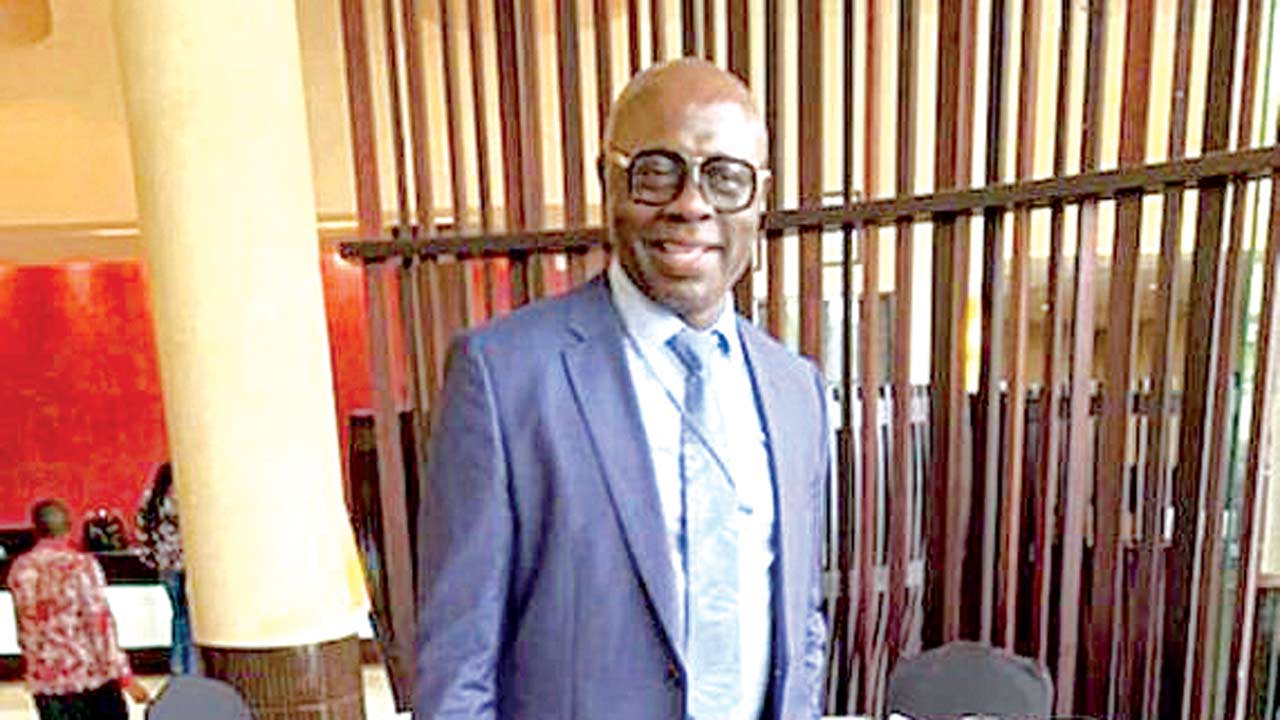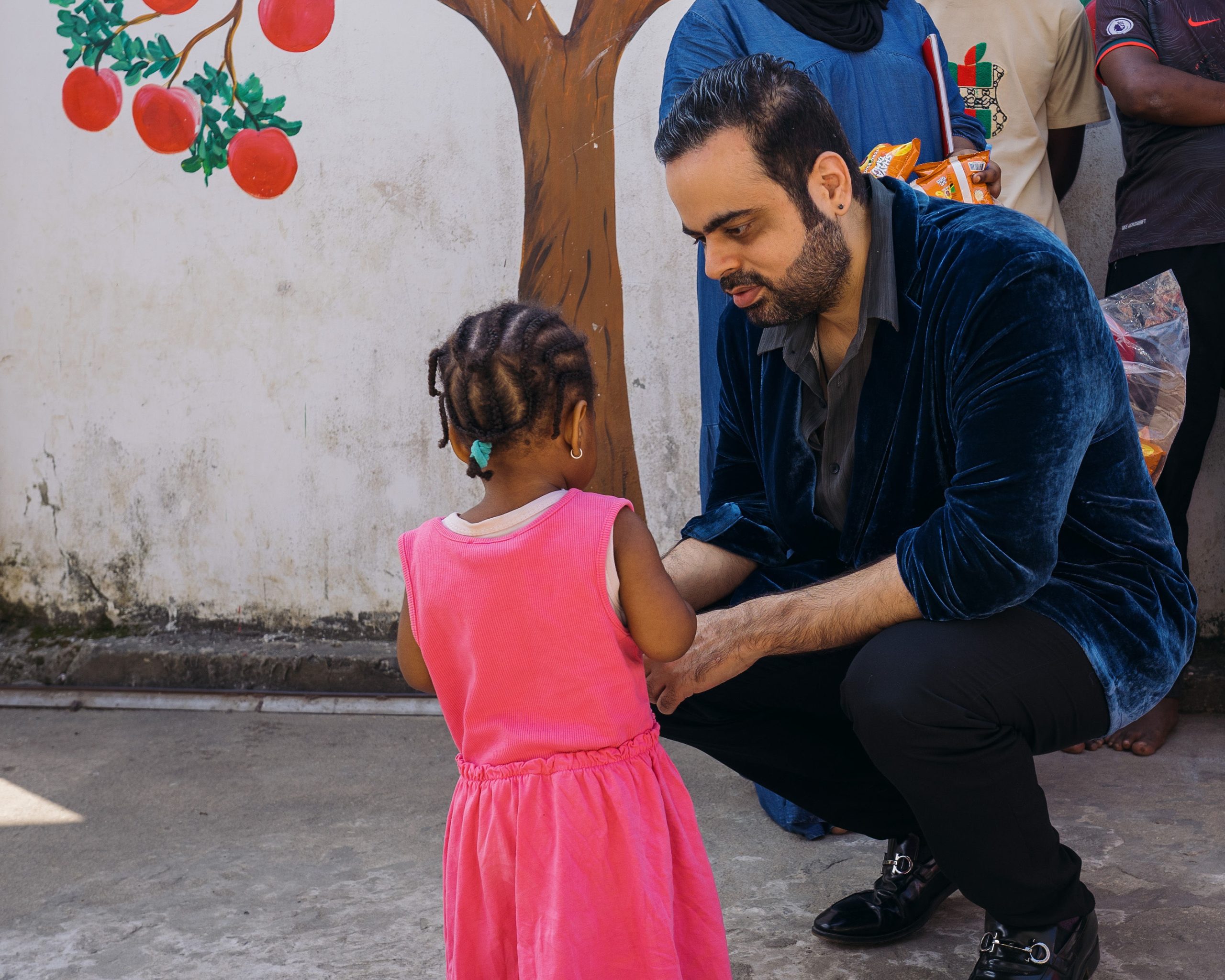
Samuel Balogun is a retired US Police officer who served in the Detroit Police. In this interview with ENIOLA DANIEL, he spoke about the Nigerian security architecture, what needs to be done to tackle security challenges, and how he intends to contribute.
What was life like growing up?
I had my Primary school education at St. Paul Anglican Primary School, Mushin, and Secondary school education at St. Anthony Grammar School, Ijebu, Mushin, Lagos. Then, I travelled to Greece to study language before moving to the United States (US).
In 2000, I enrolled with the Detroit Police and I became a police officer after six months of training.
My first shot was at becoming an FBI agent; it took three years for background investigation. Within the waiting period, they wrote to my High School in Nigeria to send my transcript, but for some reasons, there was a delay.
I was tired of waiting, so, I enrolled with the Detroit Police Department. A week before graduation from the academic, I got a call from the FBI that my clearance was ready. At that time, I had to make a decision between starting a fresh training or go on with the Detroit Police; I decided to continue with the department. In a way, I regret it because the FBI has more arresting power, but with the Detroit police, it is restricted.
But I’m happy for what I accomplished during my years in service; I was the only serving Nigerian with the Detroit Police. I went to many Nigerian churches before to convince Nigerians to join the Detroit police before I retired, but for some reasons, they shy away from joining. We have a lot of architects, engineers, doctors who are of Nigerian origin, but for some crazy reasons, no one wants to join the police.
Becoming a police officer in the US gave me the opportunity to go to places. Policing is a very lucrative job in the US, whereas it is different in Nigeria.
How did your family react when you joined the police?
My parents didn’t like it at first; they call me whenever they hear a police got shot. I’ve been to 15 Nigerian churches in the US just to convince Nigerians to join the US police before I retired, but I couldn’t get one person to join and the ones that were willing to join have bad records.
Before joining the police, did work elsewhere in the US?
I worked for UPS when I got to the US; I got tired of doing the same thing every day. I am happy helping people solve crimes. The diverse aspect of it is amazing; we have undercover, aviation units, marine.
How long did you serve in the police?
I served for 20 years and four months.
What’s your biggest accomplishment and did you face any danger working as a police officer?
My biggest achievement was cracking down on human trafficking. There was a guy picking underage for prostitution and because I don’t sound like American, I was selected to go undercover and had to call the culprit on phone to negotiate with him that I needed two girls of age 15. I provided the details of the hotel I was staying and he also called the hotel to check to confirm my identity. He supplied the girls, but he never came with them.
After the girls had visited and I’d done my checks, members of my team came in, arrested the girls and I and that was how we got his information and arrested him. I faced a lot of danger working as police; every American police on the street must have a bulletproof on. If a police doesn’t have it on and he got shot, his benefit may be denied.
I spoke with some Nigerian police officers that got injured on duty and I discovered that their family had to take care of them. The colleagues of officer that died on duty contribute money for their funeral; that’s a disgrace! Had anything happened to me before I retired, my family and funeral will be taken care of.
What’s your perception of the Nigerian police?
I hear stories that the Nigerian policemen are corrupt. Well, there’s corruption everywhere, but to bring it to a lower level, you have to pay people right. A sergeant in Nigeria is making less than $150 a month, that’s nothing. The pension is not there, the insurance is not there, the recruitment is poor and the salary is not encouraging. So, it’s a recipe for corruption because these people are not well paid. The barracks they live in is even inhumane for people to stay. In the US, everything is provided and when you retire, you keep your gun. I don’t want to go into politics but, but to deal with these challenges; there must be a structure.
Are you finally back to Nigeria?
I retired as an officer in 2020 and I am shuffling between Nigeria and the US.
You recently set up a security-consulting firm in Nigeria, what kind of service are you offering?
I am trying to bring my experience in the US to Nigeria. We witnessed what happened with the End SARS protest; the Nigerian police performance is something that hurts my feelings and challenges me to seek answers to what can be done to make the Nigerian police better; to make police work to be the job that earns someone respect and people want to join it. My security firm is interested in training, not only the police officers, but also private security outfits.
There’s another concept we are introducing which Nigerians are already embracing; it’s called community policing. The crime level will be reduced once community policing is implemented because it will reduce crime rate.
An average police officer comes to a scene of an incident, he takes the report and returns to the station, but a community officer gets people to talk to and can get to details of an issue because they know him, he lives among them and they can confide in him. For every crime, you need people to unravel things; you can have the entire gadget if people are not talking, you can’t solve the crime. But when you have community policing, it helps solve the problem better.
We have 200 million people; the policemen are not enough to take care of the population, and out of the 370,000 policemen, there are some assigned to the politicians, and VIPs, then how many is left? So, there has to be aggressive recruitment and they have to pay people the right amount of money so they can entice the right candidates because when the salary is poor, the right people won’t come. Even in the US, we still have some officers that are corrupt.
To discourage the use of police by politicians, part of what my firm is doing is to train civilians to take the role while the police go back to do their job.
I have an ex-Navy Seal on my team who can train people to be efficient, to use lesser force to disarm anyone. I’ve traveled to many countries and I can say that African nations are the only place you see police officers moving around with AK-47. And I asked why, they told me it looks more intimidating. The US police uses AK-47, but it’s always in the car.
What are you bringing to the table in terms of change on how the Nigerian police can work better?
My security firm is not to change the Nigeria Police; I don’t have the power. But what I can suggest to the government is to reassess the Nigeria police officers; if a Sergeant in Nigeria is making N60, 000 per month, then something is wrong. The system is completely broken. Security is number one; it stabilises the country so people can come to invest. I went to Gambia and I was impressed by their security; I spoke with the Gambian police officers. In Nigeria, anyone can just become a police officer; even a terrorist can become a police officer. In the US, proper background check is done and thereafter, they send applicants to the doctor for the psych to be evaluated.
To witness a change in the Nigerian police, there has to be a better pay. The amount they pay a Nigerian police is ridiculous. The shoe of a Nigerian police and his uniform doesn’t even match, and you can’t blame them because they use part of the small pay to buy what they use officially.
So, what we are trying to do is to bring people to the table and let companies understand there’s a better way for security. We have people in my firm with a combined 60 years of experience. I am bringing in people that will train personnel in hostage negotiation, we have the executive protection for VIPs, we have security consulting… it’s a whole package.
Right now, banditry, Boko Haram and other terrorist groups are ravaging Nigeria. From your experience, how do you think Nigeria can deal with this situation?
From my experience, Nigeria needs human intelligence; you can have the entire gadget on earth, but you still need to have somebody on the ground, undercover operation to get information. Before America goes to war, spies will be sent to other countries to assess what they have. Until America involved human intelligence, Osama Bin Laden was on the loose.
From your interaction with officials of the government, what has been the response?
I’ve spoken with a lot of people in position; they listen, but I don’t know if it fell on deaf ears. In some places, we have good responses as far as security firms are concerned; I’ve done a lot with security firms. I’ve retired and I don’t have to work. My benefit is okay till I die, but why will I die with my experience when I can pass it to the next person?
When are you taking off?
We will kick off training in Sheraton around July, August 2021. I am bringing a retired FBI agent, a Navy Seal, a retired marine, myself and two other officers.
You are returning home to make your own contribution to the country, why are some Nigerians abroad not thinking in that line?
The more you stay abroad, the less you think of coming back home. There are so many factors responsible for that; there is power supply problem. Some people think of the security factor, but as for me, this is where I was born, so, there is no place like home.
What are your hobbies and favourite holiday destination?
I run a lot. My favourite holiday destination is Gambia because it’s quiet, clean and safe.






